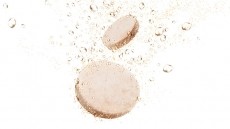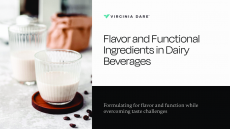Trend alert: Plant-based creamers pick up as coffee category evolves

Coffee condiments are evolving based on consumer trends and coffee shop menus. Creamers and sweeteners have moved beyond the traditional milks and sugars to include options that reflect the widening coffee industry.
At the 2018 National Automatic Merchandising Association (NAMA) Coffee Tea & Water show in New Orleans this month, analysts from Datassential revealed company research on the representation on coffee condiments at home (AH) versus away from home (AFH).
83% consumer interest in plant-based
The numbers show that 64% of people use creamer in their coffee whether AFH or AH, 41% AFH and 37% AH use sweetener, 33% AFH and 30% AH use both creamer and sweetener and 6% AFH and 2% AH use flavored syrup.
Within those categories, Datassential found that 83% of people are at least interested in using plant-based creamers or ‘milks’ in their coffee. About 34% of people use them often, 33% use them sometimes, 16% have never used them but are open to trying and 17% are not interested.
But it’s not enough to look at a plant-based blanket, as different types of creamers rule over others. Basics like almond, soy and coconut are still holding strong but are facing competition from emerging flavors like oat, flax seed, quinoa, hemp and chia seed, particularly among female Gen Z and millennials.
Most young people have tried almond creamers (67%) and soy creamers (52%), but they’re also taking a noticeable interest in the less popular options with rice (38%), chia seed (37%), hemp (36%) and pea (32%).
Functional flavors
Among all age categories, almond beverages are having the most success penetrating the mainstream. It’s seen a 356% 4-year growth on menus with just 0.2% in 2008 to 2.6% in 2018. About 91% of people know it, 55% have tried it, 16% have had it many times, 37% like or love it and 16% dislike or hate it.
The most popular flavors of creamer have remained mostly unchanged from years past: French vanilla, hazelnut, caramel, Irish cream, chocolate, holiday or seasonal and amaretto, with AFH use outpacing AH in every category.
Datassential also revealed that consumers tend to believe plant-based creamers are healthier, more natural and taste better than dairy-based options. They mix them into regular coffee as well as emerging trendy flavors like horchata, peanut butter, Dulce de leche and Mexican hot chocolate.
Functional ingredients are also making their way into coffee, tea and other CPGs, with menu growth from turmeric (166%), bee pollen (64%), ginger, sea buckthorn, activated charcoal and collagen.
















